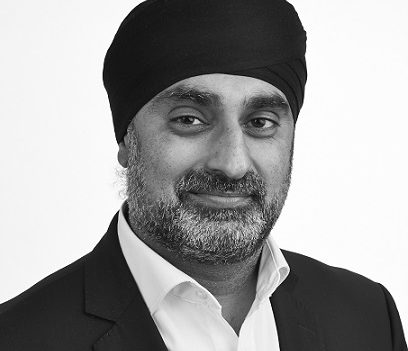At Sodexo, our aim is to remove barriers that prevent people being able to contribute fully and instead to build an inclusive workplace where our differences are embraced.
Figures from the 2011 census indicate that in England and Wales, 8 million people, 14.1% of the population, identify themselves as being from minority ethnic groups. Studies show that by 2050, the UK is set to become one of the most ethnically diverse countries in the world.

It is our responsibility to make sure our workforce represents the diversity of our clients and customers and at Sodexo our Origins network aims to encourage inclusivity and cohesion amongst our colleagues by celebrating everyone's culture, heritage and beliefs and by promoting equal opportunities for all.
Global executive sponsor for local minorities, cultures and origins and senior vice president, human resources, for the Sodexo’s global corporate services business, Raj Verma shares his experience and vision for inclusion in the workplace.
Raj has been supporting Sodexo’s diversity and inclusion team on the topic of ethnicity for two years.
What motivated you to get involved in this topic?
I have always been passionate about being able to make a difference and have continued to support inclusiveness at every opportunity. When the chance came to help shape and lead this in Sodexo, I was, without hesitation, delighted to accept the privilege.
How does your ‘day job’ support your role as executive sponsor?
I’m fortunate to have leadership for the people function in our corporate services business, and with over 170,000 employees in the segment, my team and I get access and opportunity to talk about this with our teams and share insight and knowledge with the larger organisation.
Our focus is always to make sure we can find, develop and retain the best and most diverse talent that can feel they truly belong.
Can you share an experience that has marked you during your professional life, in relation to the topic of cultures & origins?
I was the first turban wearing Sikh to work on a manufacturing site in HR. The site had over 50% ‘Black, Asian and Minority Ethnic’ (BAME) workers in its labour force but as you would expect some 20+ years ago, a very under-represented group at management or even HR level.
Being one of the first, my experience of being different ‘or the same’, I still don’t know which, was when a shop floor employee of BAME background came to my office and said that as I was ‘one of them, I should really do more for our community and help ‘our kind’ to progress. He went on to ask if I could get his son a job in the plant, now that I was in with the "white management".
A few weeks later, I sat on an interview panel to hire shop floor supervisors. During the debrief for one of the candidates, who came from a BAME background, one of the senior white managers said that given ‘who I was’, I should help ‘them’ realise why they wouldn’t get this job. The suggestion being that because I was also from a BAME background, I somehow had a special BAME radar to help manage tough conversations.
What did you learn from this experience?
Sometimes it is easy to feel that you are stuck between extremes. You have to take a position, and mine was very much to support the majority as well as the minority and engage in the dialogue to help better understand.
I have always assumed positive intent. Both these early experiences in the workplace helped me find a voice to reflect better, have the ‘uncomfortable’ conversations and garner understanding that could be shared. There is little room in this space for those without a voice and today the term ‘modern racism’ seems ever more apt as the subtlety in this topic has continued to evolve.
Do you have an example to share of the work you are doing at Sodexo to build a more inclusive workplace?
60 people attended the event with guests including our clients and other external companies across industries. At the event we talked about the topic of modern racism. We had a fantastic guest speaker, Professor Binna Kandola OBE, author, business psychologist and co-founder of Pearn Kandola. Binna talked about the ways in which modern racism can manifest itself and the actions organisations can take.
We received great internal and external feedback about the event as well as some good media coverage in our trade press. After the event we produced a podcast to enable more people to access the content.
Overall, the initiative helped focus attention on the importance of inclusion for local minorities. It has provided a great platform to continue to build on our work in this area and make a real difference.
What are your goals for the year ahead for the topic of local minorities?
Our mission is to ‘create a culturally inclusive workplace experience that reflects the diversity of the communities in which we live and serve’. This means engaging those that are under-represented such as diverse ethnic groups to strengthen our culture of belonging so that everyone can thrive.
In June 2020 we will be holding a webinar on ethnic diversity in the workplace which will be available to all our colleagues. We are working in partnership with the non-profit organisation ENAR, European Network Against Racism to develop the content for the webinar. Speakers will include myself along with diversity & inclusion leaders and sponsors from other global companies.
If you could pick one inspiring person to join you at a dinner party, who would it be?
Charles Darwin.
Which three words would you use to sum up Sodexo as a company?
Purposeful – Inclusive – Progressive.
What would your advice be to others in supporting the inclusion of local minorities in their region?
Everyone counts, so count everyone.
